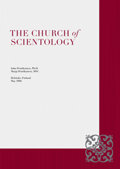The academic study of religions started in the Western world in the early 19th century due to the history of thought inspired by philosophers of the enlightenment period of 18th century Europe. When new information collected by explorers and missionaries about ancient religious traditions (the philosophies in India and the Far East in particular) reached the scholarly circles in Europe, it became necessary to redefine the very definition of religion.
The concept, which to that point had meant only Christianity and Judaism‑sometimes also Islam‑began to cover such Eastern religious philosophies as Hinduism, Buddhism, Confucianism, Taoism, Shintoism, Zoroastrianism, etc. The new discipline, called “history of religions” or “comparative religion,” became general and comparative in its approaches.
Phenomenology of religion, as one of its main branches, indicated such a variety in the field that it has been difficult for scholars of religions to present a concise definition‑that at the same time would include the most essentials about religiosity itself and be valid for whatever literate and illiterate religion in the world is concerned. One of the many efforts to define religion was based on the criterion of the concept of “God” or “deity,” until scholars found that Buddhism as one of the so‑called world religions‑at least in theory‑tried to emphasize its special label as an “atheistic” religion.
The narrow concept of religion, more often pressed by government officials than scholars of religion, needs reconsideration in the contemporary world. The word “religion” found in one form or another in most European, i.e., Germanic, Romanic and Slavic, languages, comes from a Latin word “religio.” This concept in particular includes the idea of being dependent upon something “divine.” The principle “cuius regio eius religio” in Latin, accordingly, meant that the emperor or a duke had the power since the 16th century to decide in what way his countrymen should believe and behave in post‑Reformation Europe. The whole problem of the existence of divine or social “ties” of this kind is very Western, however, and the idea itself in fact is completely absent in many cultures in the world.
So this kind of Western assumption of religion can only be applied by force into ancient Eastern religio‑philosophical traditions. Such a statement has even been made that the three main variants of Chinese world views‑Taoism, Confucianism and Buddhism‑are not at all religions in the Western meaning of the word but rather “three Taos” or “roads” to one destination, which is the principle of the harmony between Yang and Yin.
In other words, there are many cultures in the world which seem to be very religious in spite of the fact that they have gotten along without “religio”-related concepts in their respective languages. This particularly concerns the Northern cultures in the old and new worlds among which we have done field work: people practice animistic and shamanic rituals without calling them religions. A statement made to us in 1994 by a Nanay shamaness at the Lower Amur region in southeastern Siberia may be quoted as a typical example of this: “Christianity‑it is Russian. We have our shamans only.”
Another current problem concerns the role of the many contemporary functional alternatives of religions. Recent world history shows that such efforts as Communism, Marxism and Maoism to make up a “non‑religious” state and society have been quite unsuccessful. The human mind has clearly shown itself to be more interested in religious affairs than it had been thought in these and other materialistic and anthropocentric ideologies born during the previous as well as this century.





























